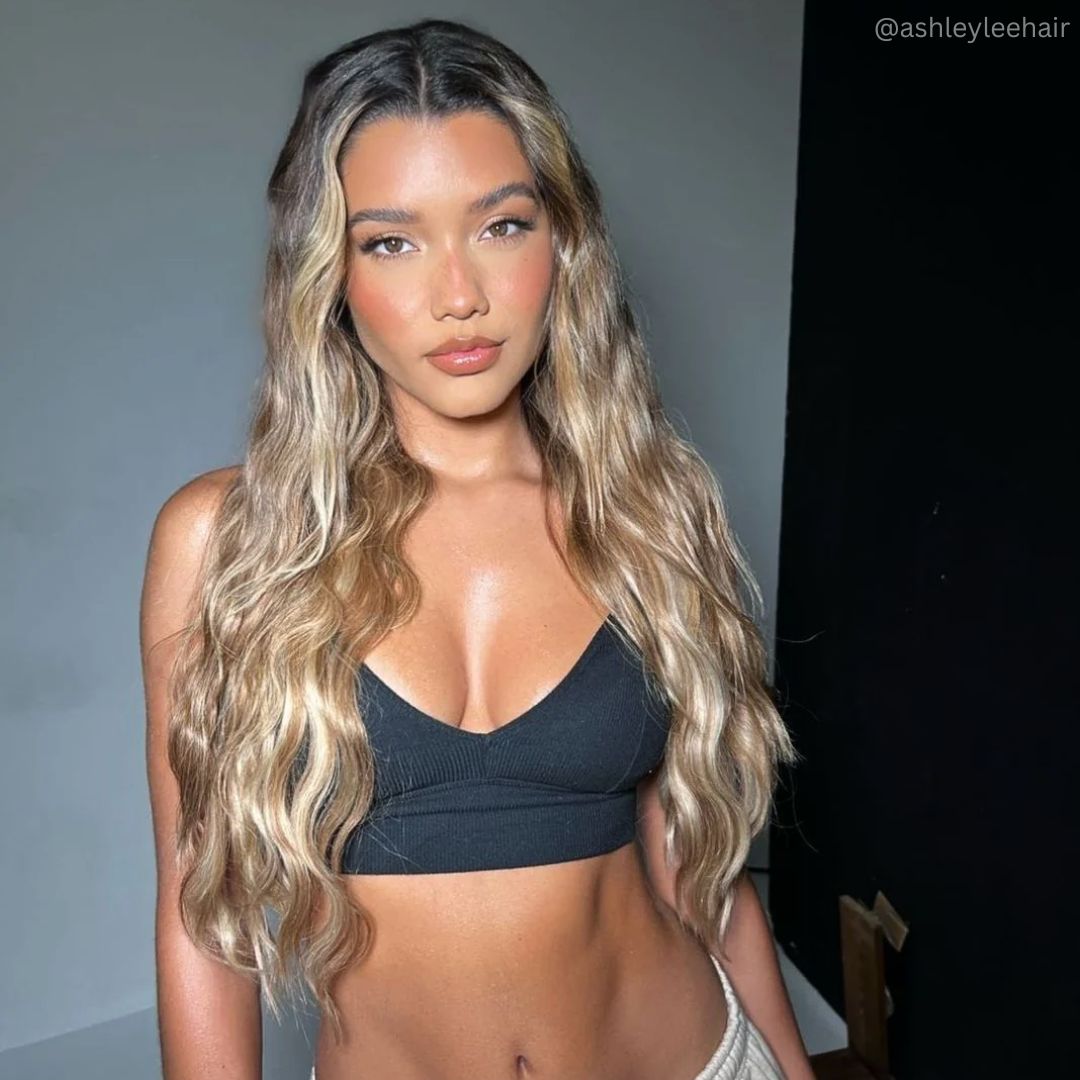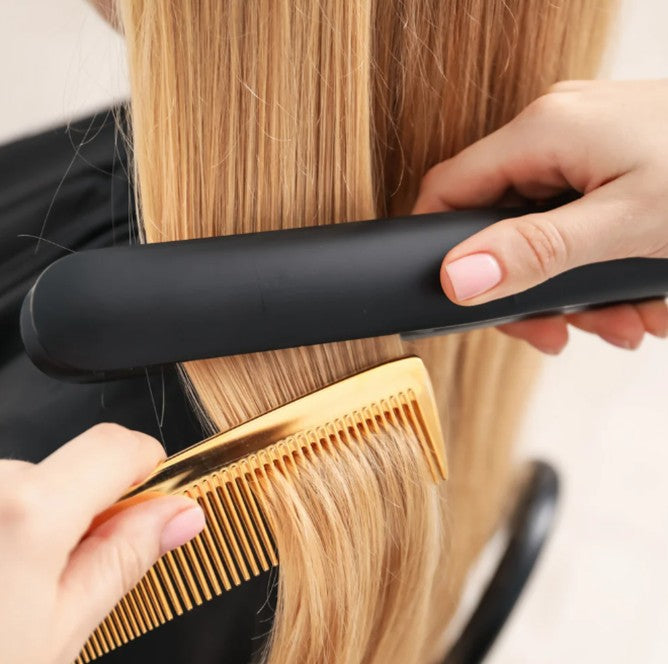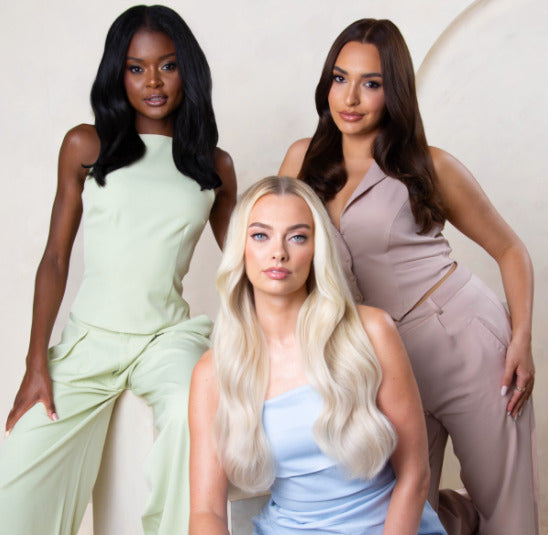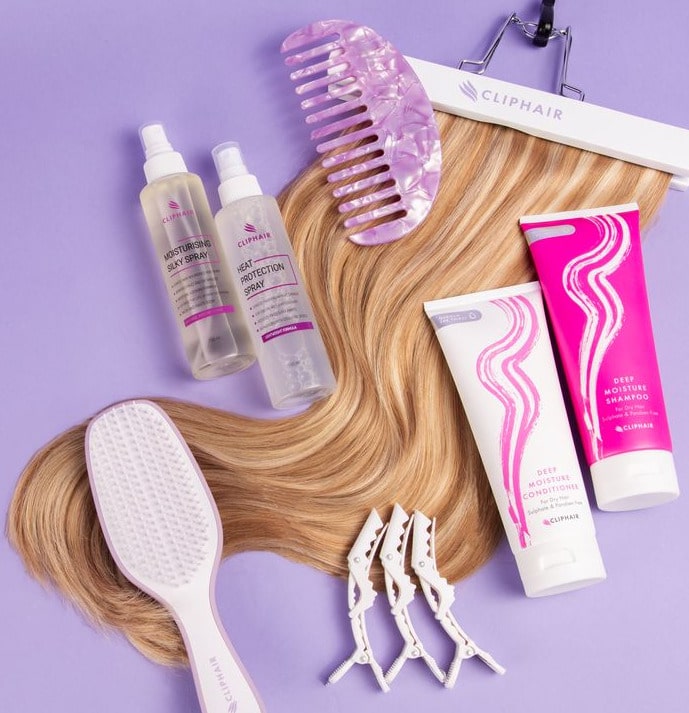The Importance Of Hair In The Queer Community
by BRENDA L. / 20 JUIN 2023

Reading Time: 4 Minutes
Index
How important is your hair to you? Some people take care of their tresses almost religiously, some others don’t really feel like experimenting with their hair at all, and other people style it or cover it to express and respect their own culture. If you think about it, hair is much more than a body part – it is a powerful tool of self-expression, creativity, identity affirmation, and so on.
The way you style and present your hair can also help you claim a space – and this is especially true for the queer community, where hair can play a crucial role in expressing and exploring gender identity and selfhood. In today’s blog, I will delve into the significance of hair in the queer community, shedding some (rainbow) light on how a haircut (or implementing hair extensions) can become a vehicle for self-expression and liberation.
Hair As A Symbol Of Non-Conformity
“And the sign said: LONG-HAIRED FREAKY PEOPLE NEED NO APPLY”. Canadian rock group Five Man Electrical Band wrote these lyrics back in 1970. How could long hair prevent someone from finding a job?Well, you’d be surprised. As longer tresses have mostly been associated with an outdated idea of womanhood, when men started growing their glorious tresses longer the conservative people started to depict this political rebellion (and gorgeous fashion statement) as immoral and corrupted.
This and many more hair history facts (you can read more about it in our dedicated blog: The Incredible History Of Hair Styling) shed some light on the importance of hair styling and how it can impact individuals as they try to find their place in the world.
Becoming a symbol of non-conformity and resistance to societal norms, particularly within the queer community, hair can help break gender stereotypes and become a powerful statement of personal identity. Think of a cis-woman adopting a traditionally masculine haircut, or a cis-man growing out his hair. These choices challenge the binary perception of gender whilst liberating the wearers of said haircuts, allowing them to express themselves.
Celebrities such as Rhianna, Miley Cyrus, Demi Lovato, Lady Gaga, and many others have adopted hairstyles and/or looks that have been mostly associated with masculine appearance in the past, helping to break the glass ceiling for non-binary individuals and more.
Hair And Gender Expression
For those within the queer community, especially transgender and gender-nonconforming individuals, hair can become a tool for affirmation. Specific hairstyles and a newly-found dress code can be a visual signal to the outside world of one's gender identity.
For transgender women, growing out hair can be an integral part of embracing their femininity, and this journey isn’t always easy – especially for those who are fighting pattern alopecia. For these individuals, a hair transplant is often recommended. In other cases, to give their tresses a kick with more bounce, plumpness and movement, hair extensions can become an effective solution.
On top of this, products like clip in hair extensions or permanent hair extensions can be used to achieve more length without having to wait years and years in order to achieve the desired length! Whilst clip ins provide a short term makeover that can instantly be recreated at home, solutions like nano ring hair extensions can help those who would like to transform a very short haircut (they can be installed on a pixie cut) to a longer ‘do.
Conversely, transgender men might opt for shorter styles typically associated with masculinity.
Meanwhile, non-binary individuals may choose hairstyles that help them express a gender identity that doesn't neatly fit into the binary of male or female, or that is easily transformable according to how they feel – such as in the case of gender-fluid individuals.
Hair And The Exploration Of Identity
Hair can serve as a medium for exploration and self-discovery within the queer community – for instance, trying different hairstyles and colours can help individuals find and articulate their identity better whilst also having fun. Changing haircuts and colours every now and then can be a validating, creative experience. For example, some may even use colour to recreate a rainbow hairstyle to sport on a pride parade.
For other people, a drastic hair change such as a big chop or a long-haired makeover can even coincide with a personal revelation or a coming-out process – marking a transition time in their lives, and a significant change in the evolution of their own self-perception and self-expression.
Hair And Solidarity
Hair isn’t just a business card, it can also signal belonging and membership, creating a solid sense of solidarity among an individual and their peers. A striking example of this is the mullet, the famous haircut that peaked in popularity around the 80s and early 90s; this haircut on queer women became a strong symbol of queer coding, the act of recognising each other among a cis/heterosexual-dominated world.
In modern days, queer icon Miley Cyrus was one of the pioneers that brought this gorgeous “business in the front, party in the back” hairstyle back to popularity.
Conclusion
The importance of hair within the queer community can't be overstated, as it is not just about looking good – it is in all effects a form of self-expression, gender affirmation, a visual representation of one’s identity and a symbol of belonging, solidarity and more. By breaking heteronormative conforming rules, hair styling in the queer community takes fashion statements and turns them into a tool of empowerment for diversity. As we continue to broaden our understanding of gender and sexual identities and orientations, it's essential to recognise and appreciate the many ways queer individuals utilise powerful expression tools like their hair and dress code to navigate and articulate themselves!
Looking for flawless, salon-worthy hair without breaking the bank? At Cliphair, we’ve got you covered with luxurious clip in hair extensions for quick transformations and permanent hair extensions for long-lasting glam. Extensions require special care and maintenance to preserve their quality, which is why we have all the top-notch hydrating haircare products needed to keep your style on point.
Need the perfect shade? Browse our full range of human hair extensions in over 70 rich, silky shades or check out our FREE Express Color Match Service to ensure a seamless blend every time.






